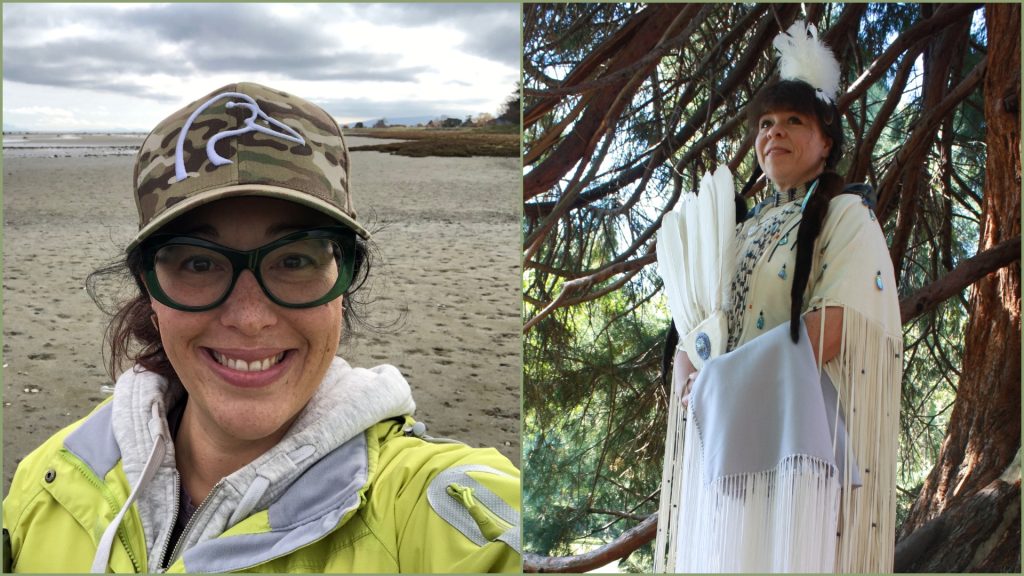The Fight For Data Sovereignty: How Indigenous Scientists Protect Their Knowledge And Culture

Table of Contents
The Threat of Data Colonialism
The historical and ongoing exploitation of Indigenous knowledge presents a significant challenge to data sovereignty. This “data colonialism” manifests in several ways.
Unethical Research Practices
For centuries, researchers have misappropriated Indigenous data and knowledge without consent or proper attribution. This biopiracy often involves the commercialization of traditional medicine, genetic resources, and cultural practices.
- Examples of misappropriation: The patenting of traditional plant remedies without acknowledging Indigenous knowledge holders; the unauthorized collection of genetic samples for research without community consent; the use of sacred stories and rituals in academic publications without permission.
- Impact on Indigenous communities: The consequences of such unethical practices are profound. They lead to a loss of control over valuable resources, cultural appropriation, and economic exploitation, undermining self-determination and cultural integrity. These actions violate intellectual property rights and cause significant harm to Indigenous communities' ability to benefit from their own knowledge.
Digital Divide and Data Accessibility
The digital divide further exacerbates the problem, limiting Indigenous communities' ability to control their data. This digital colonialism prevents them from participating fully in the digital age.
- Lack of infrastructure in remote areas: Limited or no internet access in many Indigenous territories hampers data collection, storage, and sharing.
- Limited access to training and resources: A lack of digital literacy and training prevents Indigenous communities from effectively managing and protecting their digital data.
- Consequences of this digital divide: This unequal access translates into a loss of agency over their own information, making them even more vulnerable to data exploitation.
Strategies for Indigenous Data Sovereignty
Indigenous communities are actively developing and implementing strategies to reclaim control over their data and ensure their knowledge is protected and preserved.
Community-Based Participatory Research (CBPR)
Community-Based Participatory Research (CBPR) is a powerful tool for achieving data sovereignty. It prioritizes Indigenous leadership and control throughout the research process.
- Examples of successful CBPR initiatives: Many Indigenous communities are successfully using CBPR to conduct research on their own terms, focusing on issues of importance to them. This includes research on traditional medicine, land management, and environmental health.
- Benefits of CBPR for data ownership and control: CBPR ensures that Indigenous communities determine the research questions, methods, and dissemination of findings, resulting in meaningful data ownership and control. This approach aligns with indigenous methodologies, honoring traditional knowledge systems.
Development of Indigenous Data Governance Frameworks
The creation of ethical guidelines and policies is paramount. Indigenous communities are developing their own data governance frameworks, including community-controlled data repositories and protocols for data access and sharing.
- Examples of existing Indigenous data governance frameworks: Several Indigenous nations have already established sophisticated frameworks for managing and protecting their data, establishing clear consent protocols and data sharing agreements.
- Key elements of effective data governance: These frameworks typically include community consent mechanisms, data security protocols, and processes for data sharing and benefit-sharing agreements. They prioritize ethical considerations and respect for Indigenous knowledge systems.
Utilizing Technology for Self-Determination
Indigenous communities are increasingly leveraging technology to document, preserve, and share their knowledge.
- Examples of innovative technology applications: Indigenous communities are using digital archiving techniques to preserve languages, oral histories, and cultural practices. They're also using GIS mapping to document traditional territories and resources.
- The role of technology in empowering Indigenous communities: Technology can empower Indigenous communities to tell their stories in their own voices, control the narrative, and share their knowledge on their own terms. This includes utilizing digital platforms for language revitalization and cultural preservation.
Conclusion
The threats to Indigenous data sovereignty—from unethical research practices to the digital divide—are significant. However, Indigenous communities are actively reclaiming control over their data through community-led research, the development of robust data governance frameworks, and the strategic use of technology. By prioritizing community participation, ethical research practices, and self-determination, we can protect Indigenous knowledge and cultures for generations to come. Support the fight for data sovereignty by learning more about Indigenous-led initiatives and advocating for policies that protect Indigenous knowledge and cultural rights. Consider supporting organizations working to advance data sovereignty and sign petitions calling for stronger protections of Indigenous intellectual property. Let's work together to protect Indigenous knowledge and advance data sovereignty for all.

Featured Posts
-
 Kim Kardashians Swimsuit Campaign Faces Backlash Over Tory Lanez Music Choice
May 13, 2025
Kim Kardashians Swimsuit Campaign Faces Backlash Over Tory Lanez Music Choice
May 13, 2025 -
 Dodgers Vs Cubs Prediction Home Field Advantage For La
May 13, 2025
Dodgers Vs Cubs Prediction Home Field Advantage For La
May 13, 2025 -
 The Wonder Of Animals Exploring The Diversity Of Life On Earth
May 13, 2025
The Wonder Of Animals Exploring The Diversity Of Life On Earth
May 13, 2025 -
 Ghaziabad Issues Advisory For Outdoor Workers Noida News
May 13, 2025
Ghaziabad Issues Advisory For Outdoor Workers Noida News
May 13, 2025 -
 Townhouse Hit By Three Separate Car Crashes In Two Years Cnn
May 13, 2025
Townhouse Hit By Three Separate Car Crashes In Two Years Cnn
May 13, 2025
Latest Posts
-
 Move Over Bonds Arkansas Softball Star Reigns Supreme
May 14, 2025
Move Over Bonds Arkansas Softball Star Reigns Supreme
May 14, 2025 -
 Intentionally Walking Aaron Judge A Baseball Managers Dilemma
May 14, 2025
Intentionally Walking Aaron Judge A Baseball Managers Dilemma
May 14, 2025 -
 The Unfading Legacy Of A Giants Legend
May 14, 2025
The Unfading Legacy Of A Giants Legend
May 14, 2025 -
 Arkansas Queen Of Slugging A New Era In Softball
May 14, 2025
Arkansas Queen Of Slugging A New Era In Softball
May 14, 2025 -
 The Optimal Time To Issue An Intentional Walk To Aaron Judge
May 14, 2025
The Optimal Time To Issue An Intentional Walk To Aaron Judge
May 14, 2025
